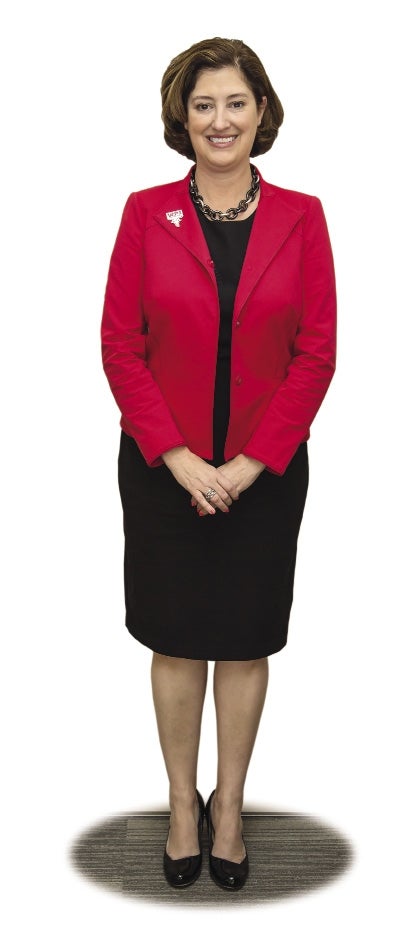
Her hiring was one for the history books: the first woman to become president of Worcester Polytechnic Institute. But self-proclaimed “space nerd” Laurie Leshin came to Worcester one year ago next week with a well-established resume. A space scientist and a former deputy director at NASA’s Goddard Space Flight Center – giving her a connection with Worcester – she has also held two White House appointments and, in academia, been a professor and a dean.
You’re coming up on your first anniversary. Is the job everything you expected it to be?
It’s even more than I expected it to be. I’m really pinching myself every day.
Have there been any surprises that have caused you to alter your perception?
The biggest surprise has been the 24/7 nature of the role, the fact that there are times when the phone rings in the middle of the night. And living in the president’s house is wonderful. On the other hand, it’s not our house! It’s the university’s house. It’s just different; it’s taken a little bit of getting used to, but it’s just wonderful to be a part of the campus community.
You have established, as a goal, that WPI become the “premier global polytechnic.” What advantages does the school have as you push toward that goal?
Being a global premier polytechnic is all about elevating our impact in the world, for the benefit of our students, in communities around the world (and) here in Central Massachusetts. Our students are all over the world working on real-world problems. And that is the scaffolding, the infrastructure on which we will build the impact in communities around the world, to make us the premier global polytechnic.
The goal is based on a foundation of what you call six pillars. Which do you see as the most challenging to build and fortify?
The six pillars came out as a result of conversations with our faculty, staff, students, our alumni and our trustees. They’re really goals and focus areas for us in the future. We position them as part of a strategic planning exercise. The interesting thing is, as we put teams together around these different pillars, whether it be to expand our global reach and impact, build a culture of innovation and entrepreneurship, or advance our research and Ph.D programs, (is that) many of the themes that emerged from the teams are common. So in the end, I’m not sure we’ll have six pillars in the plan. We’re still working to integrate those thoughts: things like helping our undergraduate students not just have a major but have a mission. One of the things that they do … that can fundamentally enhance and accelerate their education (is to help)more of our students graduate in four years, but perhaps with a master’s degree in four, or do what we call “more in four” to address the issue of cost of higher education.
I see that type of innovation happening among other campuses. Do you see that as a key challenge for the education industry over the next several years?
Like many industries, we all have to continue to adapt and change with our environment. Since most of our budget comes from tuition, we are fundamentally a healthy institution. So while we are always thinking about adapting and looking toward the future, we’re doing something from a place of strength, saying, “How can we serve our students better? How can we serve our community better?” That’s a really good place to be.
You’re a strong advocate for STEM education for women. Are more teenage girls becoming convinced that they have as much opportunity and skills to be in those fields as boys are believed to have?
I certainly hope so. As a country, we have great challenges, whether it’s homeland security or health care; all kinds of things that we need to deal with, and we need as many brains as possible to figure out these issues.
(This interview was edited for length.)
Video

